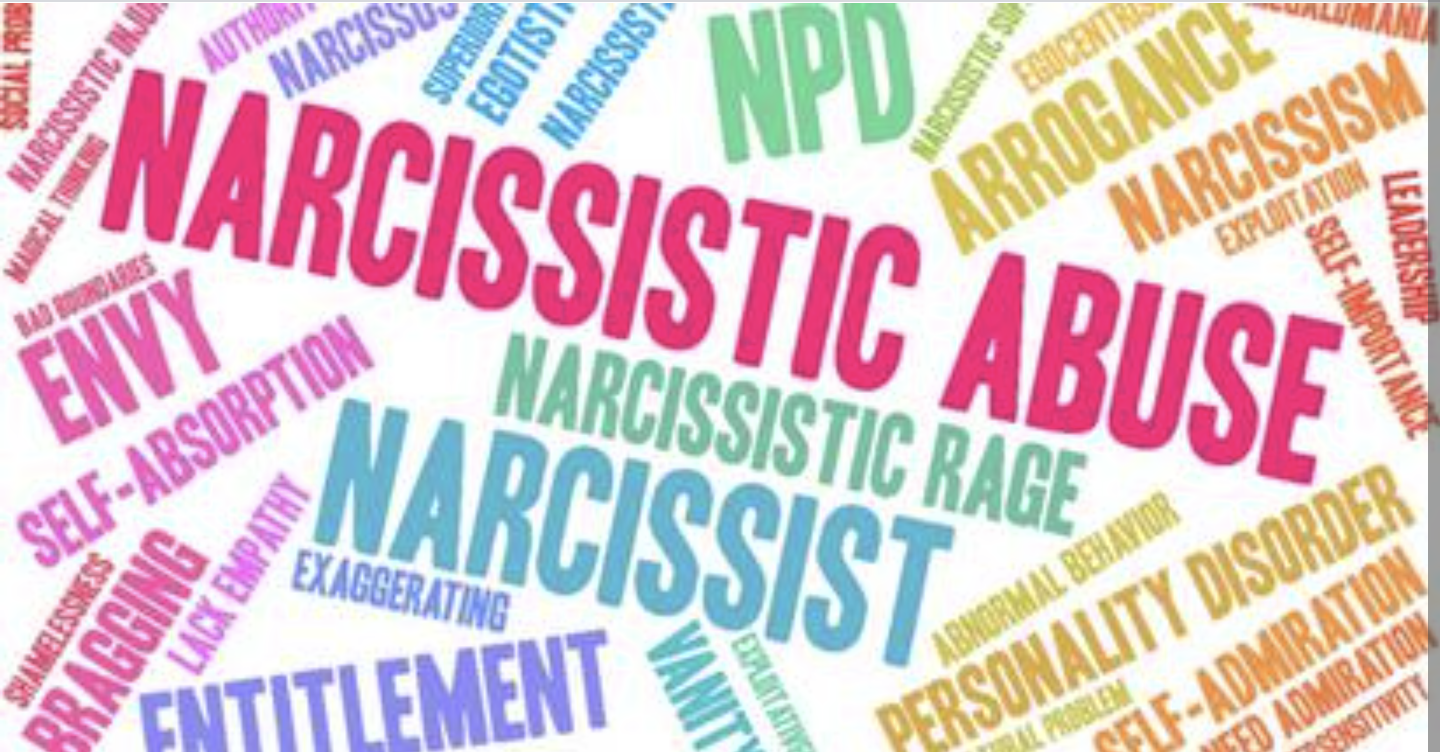How to Determine If Someone You Care About Is a Narcissist
Not all abusers are narcissists and not all narcissists are abusers.
KEY POINTS
- Symptoms of Narcissistic Personality Disorder (NPD) include a grandiose sense of self-importance and a need for admiration, among others.
- Many people with NPD may not be aware that their behavior is hurtful or abusive.
- The three subtypes of NPD are grandiose narcissism, vulnerable narcissism, and malignant narcissism.
Let’s start by taking a look at the typical behavior and emotional makeup of those who suffer from NPD. Symptoms of this disorder include poor self-identity, inability to appreciate others, entitlement, lack of authenticity, need for control, intolerance of the views/opinions of others, emotional detachment, grandiosity, lack of awareness or concern regarding the impact of their behavior, minimal emotional reciprocity, and a desperate need for the approval and positive attention from others. The following questionnaire, taken from my book, Escaping Emotional Abuse, may also be helpful in determining whether someone is a narcissist.
Questionnaire: Is Your Partner Suffering From Narcissism?
- Does your partner seem to be constantly wrapped up in himself—his interests and projects—and have little interest in what is going on with you?
- Does your partner like to be the center of attention? Does she become bored or rude when someone else has the floor?
- Does he seem to feel he is entitled to special treatment from you and others?
- Does she seem to lack empathy and compassion for other people? Does she seem to have particular difficulty feeling other people’s pain even though she expects others to feel hers?
- Does your partner feel that his opinions and beliefs are always the right ones and that others (including you) really don’t know what they are talking about?
- Does she think she is smarter, hipper, more attractive or more talented than almost anyone else?
- Does he seem to have an inordinate need to be right, no matter what issue is being discussed?
- Is your partner very charismatic, charming and/or manipulative when she wants something only to be dismissive or cold after a person has served her purpose?
- Have you come to distrust your partner because you have frequently caught him in exaggerations and lies?
- Does she often appear to be aloof, arrogant, grandiose or conceited?
- Can he be blisteringly insulting or condescending to people, including you?
- Is she frequently critical, belittling, or sarcastic?
- Does your partner become enraged if he is proven wrong or when someone has the audacity to confront him about his inappropriate behavior?
- Does she frequently complain that others do not give her enough respect, recognition or appreciation?
- Does he constantly challenge authority or have difficulty with authority figures or with anyone who is in a position of control or power?
- Does your partner seldom, if ever, acknowledge what you do for him or show appreciation to you?
- Does she instead seem to find fault with almost everything you do?
- Even when he is forced to acknowledge something you’ve done for him or a gift you’ve given him does he somehow always downplay it or imply that it really didn’t meet his standard?
- Does your partner focus a great deal of attention on attaining wealth, recognition, popularity or celebrity?
If you answered “yes” to more than half of the above questions, your partner may be suffering from NPD or may have strong narcissistic personality traits.
Are All Narcissists Abusive?
I started this series with the premise that not all abusers are narcissists. It is equally important to understand that not all narcissists are abusers. Current research has revealed that there are at least three distinguishable subtypes of NPD: 1) the grandiose, overt narcissist and 2) the vulnerable, covert narcissist, and 3) the malignant narcissist.
The grandiose, overt narcissist is characterized by boldness, arrogance, and grandiose personality traits. People with this type of NPD are more likely to lack empathy, behave aggressively, exploit others, and engage in exhibitionist behaviors. They also require excessive praise and attention.
The vulnerable, covert narcissist is characterized by hypersensitivity and defensiveness. This type of narcissist tends to have a lot of anxiety and need a lot of supportive attention. People with this type of NPD may crave and seek approval and admiration but act in more subtle, often passive-aggressive ways than an overt narcissist and may socially withdraw if it is not given. A covert narcissist may even be outwardly self-effacing or withdrawn in their approach but the end goals are the same.
Both the grandiose narcissist and the covert narcissist can certainly exhibit abusive behavior. The grandiose narcissist lacks empathy and therefore has difficulty recognizing how his behavior can be hurtful. He or she can be demanding and have unreasonable expectations. And many will do anything to get their way, including walking all over people. The covert narcissist can also be demanding due to their extreme insecurity. They can be unreasonably jealous and tend to focus only on their own needs. But it is important to understand that neither of these two types of narcissists set out to be abusive or controlling.
The malignant narcissist is an entirely different story. Considered the most severe type of narcissism and the most harmful to others, the malignant narcissist tends to have a darker side to their self-absorption. While most narcissists do not consciously set out to abuse others, the alignant narcissist does just that. In addition to having general traits of NPD, they have antisocial traits and even a sadistic streak. There is also often some paranoia involved. In fact, malignant narcissists display traits and symptoms of both antisocial and narcissistic personality disorder.
Antisocial traits in malignant narcissists include: a pattern of violating the rights of others; breaking rules and laws; deceiving others; aggressiveness; reckless, harmful behavior; and using or exploiting others for personal gain or pleasure. While there can be hope for many narcissists, if your partner matches the description of a malignant narcissist, there is little if any hope that he or she will change.
When a Narcissist Becomes Abusive
It is important when dealing with a narcissistic individual or someone with strong narcissistic traits to keep remembering that he or she is not a very aware human being, especially when it comes to his or her own behavior. Although much of his or her behavior can be experienced as emotionally abusive (e.g., his arrogance, his dismissive attitude, his need to be right), he or she isn’t necessarily trying to make you feel bad about yourself (the malignant narcissist being the exception). In fact, the primary goal of the narcissist is to make himself feel good, even at the expense of others. His inattentiveness, his brashness, and his insensitive comments may seem as if he is deliberately trying to hurt you, when in reality, most of the time he frankly could care less about how you feel.
For this reason it is important not to take what a narcissistic individual says or does personally. This, of course, is a very difficult task. But if you can try to remember that in a narcissistic individual’s world, he or she is the center of the universe and everyone else is but a mere satellite revolving around him or her, it might help. This doesn’t mean he or she doesn’t have feelings or that he or she isn’t capable of caring about others, but it does mean that his or her needs will always come first.
The only time most narcissistic individuals deliberately try to hurt others (again, with the exception of the malignant narcissist) is when they themselves feel criticized or threatened in some way (e.g., if you dare to question their ability or knowledge, if you tell them they are wrong about something, or if you challenge their authority). This is when you will feel their full wrath. Narcissistic individuals can cut you to your core in seconds by using just the right words that can wound you the most.
In the fourth and final post in this series, I will discuss what causes both NPD and Borderline Personality Disorder (BPD) and whether it is possible for those who suffer from either NPD or BPD to change.




Leave A Comment